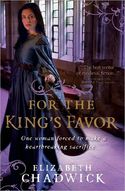
 I write historical novels that tell the life stories of people who have actually lived, and whose bones are still physically on this earth. My career involves fleshing out those bones and bringing past lives and times back to life for readers of today. Who were these people? What were they like in life? What were their dreams, their aspirations, their stories?
I write historical novels that tell the life stories of people who have actually lived, and whose bones are still physically on this earth. My career involves fleshing out those bones and bringing past lives and times back to life for readers of today. Who were these people? What were they like in life? What were their dreams, their aspirations, their stories?
I am always aware that in such telling that my path involves extensive use of the imagination. From the first piece of dialogue, I am putting words in the mouths of my characters. I am writing scenes for them that sometimes never happened, sitting them down to dine on meals they never ate, and giving them thoughts that I think they may have had, but I don’t know for sure.
Nevertheless, I am a storyteller trying to bring modern readers close to what happened back then and it is my duty to weave my tale with integrity and a care for the known historical facts and the people involved.
I strongly believe that any author who is going to write about a person who actually lived, should do their level best to find out everything they can about their chosen subject. This means exploring any documented character traits that they had and noting how they responded to situations and other people, and how other people responded to them. Conducting in depth research is a way of respecting your subject matter because the more you know about the person, the more able you will be to write their story with truthfulness. From my personal viewpoint as an author, I feel it is not right to play fast and loose with known history. To me the length of time that has passed makes no difference. The 13th century is owed just as much integrity as something that happened last week. To say it doesn’t smacks to me of modern arrogance and says that we are more important then them. But one day our society will be the long ago, and our lives will be at the mercy of a different generation of story tellers, so it behoves us to tread with honour.
Sometimes characters are well documented and finding out about their lives is simple enough, although often one has to read between the lines and at the same time have a good knowledge of the culture and ideas of the time. If a writer looks at people through a modern lens, then distortion is bound to occur. So it is important that an author studies a known character’s choices using the prevailing attitudes of the time. For example, with a modern eye, I might look at the great William Marshal, marrying off his daughter at the age of 13 and then leaving her to cross the sea to Ireland, and be appalled. But looking at it through a Medieval lens, I see a father anxious to do the best for his daughter and his dynasty by ensuring she was married into a noble family of high status who would keep her protected while he was away and also cement an alliance between the families. Since 12 was the age of consent to marriage at that point, everything to the medieval mind was decent and above board. (consent to marriage was not the same as consent to sexual relations, although it happened depending on circumstances). Thus, what might horrify our modern sensibilities, is in Medieval terms a father doing what he knew was best for his child and his dynasty. It might not be our mindset, but it was theirs.
The further back you go, the more difficult it become to find out details, but usually there are at least fragments to act as pointers. Usually too, you soon become discerning about your sources and find out who is reliable and who is not. Some chroniclers play fast and loose with the truth or have their own agendas, so it is important to read the facts from as many different sources as possible.
Writing fictitiously about people who have actually lived becomes more awkward if an author is telling a story about someone with close relatives still alive today. It is one thing to write a novel about a personality who has been dead for 800 years, quite another to write about someone who died say 50 years ago and is still remembered by their, community, friends and family. Depending on the content of the story, a writer could easily end up being slapped with a lawsuit, or cause deep offence. An author should therefore step with caution and sensitivity when the subject matter is only a short distance away.
In summary, my thoughts on the thorny matter of writing about real people as opposed to inventing them from scratch, is that integrity should be an author’s watchword, and that the research should be thorough and draw on as many sources as possible in order to built up an informed picture of many layers that will distill the true essence of the personalities involved. As author Laurel Kenyon said at the Historical Novel Society Conference in Schaumburg Illinois in 2009: ‘Do not defame the dead.’
FOR THE KING’S FAVOR BY ELIZABETH CHADWICK—IN STORES SEPTEMBER 2010
A bittersweet tale of love, loss, and the power of royalty…
A captivating story of a mother’s love stretched to breaking and a knight determined to rebuild his life with the royal mistress, For the King’s Favor is Elizabeth Chadwick at her best. Based on a true story never before told and impeccably researched, this is a testament to the power of sacrifice and the strength of love. When Roger Bigod, heir to the powerful earldom of Norfolk, arrives at court to settle an inheritance, he meets Ida de Tosney, young mistress to King Henry II. In Roger, Ida sees a chance for lasting love, but their decision to marry carries an agonizing price. It’s a breathtaking novel of making choices, not giving up, and coping with the terrible shifting whims of the king.
ABOUT THE AUTHOR
Elizabeth Chadwick lives near Nottingham with her husband and two sons. She is the author of 18 historical novels, including The Greatest Knight, The Scarlet Lion, A Place Beyond Courage, Lords of the White Castle, Shadows and Strongholds, the Winter Mantle, and the Falcons of Montabard, four of which have been shortlisted for the Romantic Novelists’ Awards. Much of her research is carried out as a member of Regia Anglorum, an early medieval re-enactment society with the emphasis on accurately re-creating the past. She won a Betty Trask Award for The Wild Hunt, her first novel. For more information, please visit her website.
To comment for a chance to win on Elizabeth’s blog please click here.


No Comments
Comments are closed.